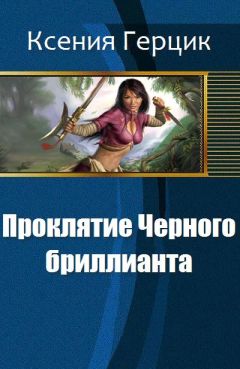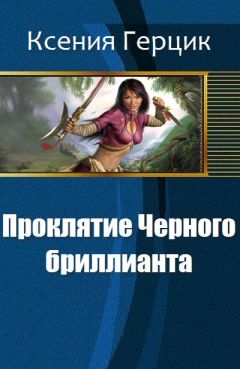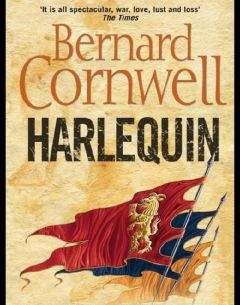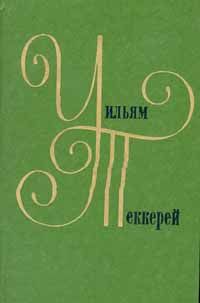Bernard Cornwell - The Grail Quest 2 - Vagabond
For God, for France, for St Denis and for the Grail.
Sir William Douglas cursed. Arrows were hissing all about him. Horses were screaming and men were lying dead or injured on the grass. For a heartbeat he felt bewildered, then he realized that his forage party had blundered into an English force, but what kind of force? There was no English army nearby! The whole English army was in France, not here! Which meant, surely, that the citizens of Durham had broken their truce and that thought filled Sir William with a terrible anger. Christ, he thought, but there would not be one stone left on another when he had finished with the city, and he tugged the big shield to cover his body and spurred south towards the bowmen who were lining a low hedge. He reckoned there were not so many of them, maybe only fifty, and he still had nearly two hundred men mounted and so he roared the order to charge. Swords scraped from scabbards. 'Kill the bastards!' Sir William shouted. 'Kill them!' He was savaging his horse with his spurs and thrusting other confused horsemen aside in his eagerness to reach the hedge. He knew the charge would be ragged, knew some of his men must die, but once they were over the blackthorn and in among the bastards they would kill them all.
Bloody archers, he thought. He hated archers. He especially hated English archers and he detested traitorous, truce-breaking Durham archers above all others. 'On! On!' he shouted. 'Douglas! Douglas!' He liked to let his enemies know who was killing them, and who would be raping their wives when they were dead. If the city had broken the truce, then God help that city for he would sack, rape and burn the whole of it. He would fire the houses, plough the ashes and leave the bones of its citizens to the winter blight, and for years men would see the bare stones of the ruined cathedral and watch the birds nesting in the castle's empty towers and they would know that the Knight of Liddesdale had worked his revenge.
'Douglas!' he shouted, 'Douglas!' and he felt the thump of arrows smacking into his shield and then his horse screamed and he knew more arrows must have driven deep into its chest for he could feel the beast stumbling. He kicked his feet from the stirrups as the horse slewed sideways. Men charged past him, scream-ing defiance, then Sir William threw himself out of the saddle and onto his shield that slid along the wet grass like a sledge, and he heard his horse screaming in pain, but he himself was unhurt, hardly even bruised and he pushed himself up, found his sword that he had dropped when he fell and ran on with his horsemen. A rider had an arrow sticking from his knee. A horse went down, eyes white, teeth bared, blood flecking from the arrow wounds. The first horsemen were at the hedge and some had found a gap and were spurring through and Sir William saw that the damned English bowmen were running away. Bastards, he thought, cowardly bloody English rotten whoreson bastards, then more bows sounded harsh to his left and he saw a man fall
from a horse with an arrow through his head and the fog lifted enough to show that the enemy archers had not run away, but had merely joined a solid mass of dismounted menat-arms. The bowstrings sounded again. A horse reared in pain and an arrow sliced into its belly. A man staggered, was struck again and fell back with a crash of mail. Sweet Christ, Sir William thought, but there was a damned army here! A whole damned army! 'Back! Back!' he bellowed. 'Haul off ! Back!' He yelled till he was hoarse. Another arrow drove into his shield, its point whipping through the leather-covered willow and, in his rage, he slapped at it, breaking the ash shaft.
'Uncle! Uncle!' a man shouted and Sir William saw it was Robbie Douglas, one of his eight nephews who rode with the Scottish army, bringing him a horse, but a pair of English arrows struck the beast's quarter and, enraged by pain, it broke away from Robbie's grasp.
'Go north!' Sir William shouted at his nephew. 'Go on, Robbie!'
Instead Robbie rode to his uncle. An arrow struck his saddle, another glanced off his helmet, but he leaned down, took Sir William's hand and dragged him north-wards. Arrows followed them, but the fog swirled thick and hid them. Sir William shook off his nephew's grip and stumbled north, made clumsy by his shield stuck with arrows and by_
his heavy mail. God damn it, God damn it!
'Mind left! Mind left!' a Scottish voice cried and Sir William saw some English horsemen coming from the hedgerow. One saw Sir William and thought he would be easy pickings. The English had been no more ready for battle than the Scotsmen. A few wore mail, but none was properly armoured and none had lances. But Sir William reckoned they must have detected his presence long before they loosed their first arrows, and the anger at being so ambushed made him step towards the horse-man who was holding his sword out like a spear. Sir William did not even bother to try and parry. He just thrust his heavy shield up, punching it into the horse's mouth, and he heard the animal whinny in pain as he swept his sword at its legs and the beast twisted away and the rider was flailing for balance and was still trying to calm his horse when Sir William's sword tore up under his mail and into his guts. 'Bastard,' Sir William snarled and the man was whimpering as Sir William twisted the blade, and then Robbie rode up on the man's far side and chopped his sword down onto his neck so that the Englishman's head was all but severed as he fell from the saddle. The other horsemen had mysteriously shied away, but then arrows flew again and Sir William knew the fickle fog was thinning. He dragged his sword free of the corpse, scabbarded the wet blade and hauled himself into the dead man's saddle. 'Away!' he shouted at Robbie who seemed inclined to take on the whole English force single-handed. 'Away, boy! Come on!'
By God, he thought, but it hurt to run from an enemy, yet there was no shame in two hundred men fleeing six or seven hundred. And when the fog lifted there could be a proper battle, a murderous clash of men and steel, and Sir William would teach these bastard English how to fight. He kicked his borrowed horse on, intent on carrying news of the English to the rest of the Scottish army, but then saw an archer lurking in a hedge. A woman and a priest were with the man and Sir William put a hand to his sword hilt and thought about swerving aside to take some revenge for the arrows that had ripped into his forage party, but behind him the other Englishmen were shouting their war cry: 'St George! St George!' and so Sir William left the isolated archer alone. He rode on, leaving good men on the autumn grass. They were dead and dying, wounded and frightened. But he was a Douglas. He would come back and he would have his revenge. A rush of panicked horsemen galloped past the hedge where Thomas, Eleanor and Father Hobbe crouched. Half a dozen horses were riderless while at least a score of others were bleeding from wounds out of which the arrows jutted with their white goose feathers spattered red. The riders were followed by thirty or forty men on foot, some limping, some with arrows stuck in their clothes and a few carrying saddles. They hurried past the burning cottages as a new volley of arrows hastened their retreat, then the thump of hooves made them look back in panic and some of the fugitives broke into a clumsy run as a score of mail-clad horsemen thundered from the mist. Great clods of wet earth spewed up from the horses' hooves. The stallions were being curbed, forced to take brief steps as their riders took aim at their victims, then the spurs went back as the horses were released to the kill and Eleanor cried aloud in anticipation of the carnage. The heavy swords chopped down. One or two of the fugitives dropped to their knees and held their hands up in surrender, but most tried to escape. One dodged behind a galloping horseman and fled towards the hedge, saw Thomas and his bow and turned straight back into the path of another rider who drove the edge of his heavy sword into the man's face. The Scotsman went onto his knees, mouth open as though he would scream, but no sound came, only blood seeping between the fingers that were clasped over his nose and eves. The horseman, who had no shield or helmet, turned his stallion and then leaned out of the saddle to chop his sword into his victim's neck, killing the man as if he were a cow being pole-axed and that was oddly appropriate because Thomas saw that the mounted killer was wearing the badge of a brown cow on his jupon, which was a short jerkin-like coat half cover-ing his mail hauberk. The jupon was torn, bloodstained and the cow badge had faded so that at first Thomas thought it was a bull. Then the horseman swerved to-wards Thomas, raised his bloody sword in threat and then noticed the bow and checked his horse. 'English?'
'And proud of it!' Father Hobbe answered for Thomas.
A second horseman, this one with three black ravens embroidered on his white jupon, reined in beside the first. Three prisoners were being pushed towards the two horsemen.
'How the devil did you get this far in front?' the newly arrived man asked Thomas.
'In front?' Thomas asked.
'Of the rest of us.'
'We walked,' Thomas said, 'from France. Or at least from London.'
'From Southampton!' Father Hobbe corrected Thomas with a pedantry that was utterly out of place on this smoke-stinking hilltop where a Scotsman writhed in his death agonies.
'France?' The first man, tangle-haired, brown-faced, and with a northern accent so thick that Thomas found it hard to understand, sounded as if he had never heard of France. 'You were in France?' he asked.
'With the King.'
'You're with us now,' the second man said threateningly, then looked Eleanor up and down. 'Did you bring the doxie back from France?'
'Yes,' Thomas replied curtly.
'He lies, he lies,' a new voice said and a third horse-man pushed himself forward. He was a lanky man, maybe thirty years old, with a face so red and raw that it looked as though he had scraped his skin off with the bristles when he shaved his sunken cheeks and long jaw. His dark hair was worn long and tied at the nape of his neck with a leather lace. His horse, a scarred roan, was as thin as the rider and had white nervous eyes. 'I hate goddamn liars,' the man said, staring at Thomas, then he turned and gave a baleful glance at the prisoners, one of whom wore the red heart badge of the Knight of Liddesdale on his jupon. 'Almost as much as I hate goddamn Douglases.'
The newcomer wore a padded gambeson in place of a hauberk or haubergeon. It was the kind of protection an archer might wear if he could afford nothing better, yet this man plainly outranked archers for he wore a gold chain about his neck, a mark of distinction reserved for the gentry and above. A battered pig-snouted helmet, as scarred as the horse, hung from his saddle's pommel, a sword, plainly scabbarded in leather was at his hip, while a shield, painted white with a black axe, hung from his left shoulder. He also had a coiled whip hanging at his belt. 'The Scots have archers,' the man said, looking at Thomas, then his unfriendly gaze moved on to Eleanor, 'and they have women.'
'I'm English,' Thomas insisted.
'We're all English,' Father Hobbe said firmly, forget-ting that Eleanor was a Norman.
'A Scotsman would say he was English if it stopped him from being gutted,' the rawfaced man said caustically. The other two horsemen had fallen back, evidently wary of the thin man who now uncoiled the leather whip and, with a casual skill, flicked it so that the tip snaked out and cracked the air an inch or so from Eleanor's face. 'Is she English?'
'She's French,' Thomas said.
The horseman did not answer straightaway, but just stared at Eleanor. The whip rippled as his hand trembled. He saw a fair, slight girl with golden hair and large, frightened eves. Her pregnancy did not show yet and there was a delicacy to her that spoke of luxury and rare delight. 'Scot, Welsh, French, what does it matter?' the man asked. 'She's a woman. Do you care where a horse was born before you ride it?' His own scarred and thin horse became frightened just then because the veering wind blew a sour gust of smoke to its nostrils. It stepped sideways in a series of small, nervous steps until the man drove his spurs back so savagely that he pierced the padded trapper and made the destrier stand shivering in fear. 'What she is' – the man spoke to Thomas and pointed his whip handle at Eleanor – 'don't matter, but you're a Scot.'
'I'm English,' Thomas said again. A dozen other men wearing the badge of the black axe had come to gaze at Thomas and his companions. The men surrounded the three Scottish prisoners who seemed to know who the horseman with the whip was and did not like the knowledge. More bowmen and men-at-arms watched the cottages burning and laughed at the panicked rats that scrambled from what was left of the collapsed mossy thatch.
Thomas took an arrow from his bag and immediately four or five archers wearing the black-axe livery put arrows on their own strings. The other men in the axe livery grinned expectantly as if they knew this game and enjoyed it, but before it could be played out the horseman was distracted by one of the Scottish prisoners, the man wearing Sir William Douglas's badge who, taking advantage of his captors' interest in Thomas and Eleanor, had broken free and run northwards. He had not gone twenty paces before he was ridden down by one of the English men-at-arms and the thin man, amused by the Scotsman's desperate bid for freedom. pointed at one of the burning cottages. 'Warm the bastard up,' he ordered. 'Dickon! Beggar!' He spoke to two dismounted men-at-arms.
'Look after those three.' He nodded towards Thomas. 'Watch 'em close!'
Dickon, the younger of the two, was round-faced and grinning, but Beggar was an enormous man, a shambling giant with a face so bearded that his nose and eyes alone could be seen through the tangled, crusted hair beneath the brim of the rusted iron cap that served as a helmet. Thomas was six feet in height, the length of a bow, but he was dwarfed by Beggar whose vast chest strained at a leather jerkin studded with metal plates. At the giant's waist, suspended by two lengths of rope, were a sword and a morningstar. The sword had no scabbard and its edge was chipped, while one of the spikes on the big metal ball of the morningstar was bent and smeared with blood and hair. The weapon's three-foot haft banged against the giant's bare legs as he lurched towards Eleanor. 'Pretty,' he said, 'pretty.'
'Beggar! Down, boy! Down!' Dickon ordered cheerfully and Beggar dutifully twitched away from Eleanor, though he still gazed at her and made a low growling noise in his throat. Then a scream made him look towards the nearest burning cottage where the Scots-man, stripped naked now, had been thrust in and out of the fire. The prisoner's long hair was alight and he frantically beat at the flames as he ran in panicked circles to the amusement of his English captors. Two other Scottish prisoners were squatting nearby, held on the ground by drawn swords.
The thin horseman watched as an archer swathed the prisoner's hair in a piece of sacking to extinguish the flames. 'How many of you are there?' the thin man asked.
'Thousands!' the Scotsman answered defiantly.
The horseman leaned on his saddle's pommel. 'How many thousands, culls?'
The Scotsman, his beard and hair smoking and his naked skin blackened by embers and lacerated by cuts, did his best to look defiant. 'More than enough to take you back home in a cage.'




